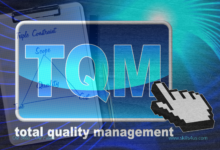
Speed And Ability To Make Decision Are One Of The Components Of Manager’s Professional Success
The ability to make and stick to a decision is the cornerstone of excellent and practical leadership skills. Note that decision-making is an ongoing process in every business. Furthermore, having a managerial leader with critical thinking skills allows him to ascertain the problem. And develop a solution that is beneficial to the company and its employees. Because managers have to make decisions every day. Also the process used to make the decision is essential to the bottom line.
A manager’s failure to decide can cause chaos among the employees. And it also leads to the interruption of the overall production and efficiency of the employees. Conversely, a manager who can act quickly in any situation is viewed more favorably among employees.
The manager decides based on the facts presented and proceeds with quick and professional judgment. It knows that making arbitrary decisions based on rumors or unwanted information is unprofessional. And it also indicates a lack of confidence as managers and in employees and work teams.
While one can acquire good leadership skills, it takes an innate sense within one’s personality to make non-stressful decisions about any person or situation. Likewise, employees look to managers and expect them to make career decisions that will positively impact the organization. While these decision-making skills are lacking, there can be a lack of confidence in business leadership.
Reasons why decision-making ability is critical in management
1. It saves time
Managers are busy people who oversee the workload of their entire department, if not the organization as a whole, by delegating, supervising, and leading by example. So most managers say they can do their job better if they have more time in the day. Hence the importance of being an excellent decision-maker in your organization because it has beneficial returns, saving time.
As a top manager, you know what decisions you can make just by trusting your instincts and which ones need some research first. At the same time, the ability to make educated and quick decision-making will save you time from overthinking!
2. Enhance respect
Employees want a strong leader they can follow. And one way to impress your team is to show that you are comfortable making decisions. If you are a confident and well-informed manager, your employees will feel good knowing they can trust their boss to point them in the right direction!
3. Motivation Establishment
The primary task of a management leader is to enable his employees to work as productively as possible. When employees see that their manager is highly skilled and can make decisions, it gives them something to emulate as they grow and develop in their professional positions.
4. Prevent conflict
When the manager is not assertive and leaves many decisions to the employees, this can lead to conflict in the workplace. A situation where employees don’t know the direction can lead to too many people trying to take over.
So to prevent your employees from arguing about how to do a project or which idea is best for your team, improve your decision-making skills and point them in the right direction.
5. Increase productivity
All employees can attest to the frustration of a faltering task that does not get prompt. And appropriate approval or decision from management, which slows down work and creates inefficiencies. However, when a manager can evaluate the pros and cons and make a quick decision, it allows employees to start working on it faster, thus increasing productivity.
Having the ability to make a quick but good decision is imperative in all life situations. To be an effective manager, the ability to make a decision is vital and one of the ingredients for your success in your career.



